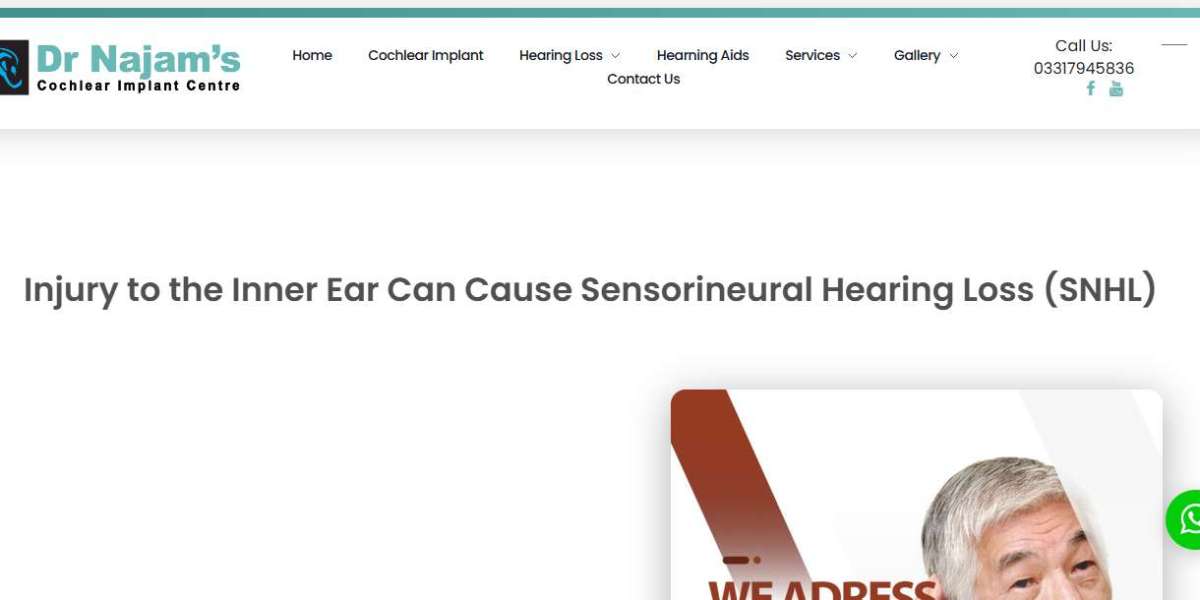What is a Cochlear Implant?
A cochlear implant is a sophisticated electronic medical device designed to bypass damaged portions of the ear and directly stimulate the auditory nerve. Unlike hearing aids that simply amplify sound, cochlear implants convert sound into electrical signals and deliver them directly to the brain, enabling the user to perceive sound.
The implant consists of two main components:
An external processor that sits behind the ear.
An internal receiver that is surgically implanted under the skin and attached to electrodes in the cochlea.
Why Cochlear Implants Are Necessary in Pakistan
In Pakistan, hearing loss is a major public health issue, particularly among children. Factors like lack of prenatal care, genetic conditions, infections, and noise pollution contribute to rising numbers. Unfortunately, many families remain unaware of effective solutions, often relying solely on traditional hearing aids which may not be effective for profound hearing loss.
The cochlear implant in Pakistan provides a life-changing solution, especially when done at an early age. With early intervention, children with hearing loss can develop speech, attend mainstream schools, and lead independent lives.
Availability of Cochlear Implants in Pakistan
In recent years, the accessibility of cochlear implant in Pakistan has improved due to both government and private sector initiatives. Several major hospitals and hearing centers in cities like Lahore, Karachi, and Islamabad offer cochlear implant services.
Key providers and initiatives include:
Punjab Cochlear Implant Programme (PCIP): This government-funded initiative provides free cochlear implants for eligible children in Punjab.
Indus Hospital, Karachi and Shifa International, Islamabad: These institutions offer both private and subsidized implant surgeries.
Private clinics and ENT specialists: Many private sector audiologists and surgeons offer world-class services but at a higher cost.
Cost and Funding Options
One of the major challenges is the high cost of cochlear implants. The total cost (including device, surgery, and post-operative therapy) can range from PKR 1.5 million to PKR 2.5 million, depending on the hospital and implant brand.
To address this, various NGOs and government programs now provide financial assistance. Parents are encouraged to explore:
Health cards (Sehat Sahulat Programme) in some provinces.
Charitable foundations like Bait-ul-Mal and Akhuwat.
Crowdfunding platforms like GoFundMe for personal fundraising.
The Procedure and Rehabilitation
The surgical procedure for cochlear implantation is generally safe and takes around 2–3 hours under general anesthesia. However, the journey doesn't end with surgery. Post-operative care is crucial and includes:
Device activation (after healing)
Speech and auditory therapy
Regular follow-up for mapping and tuning the device
Rehabilitation can take several months to years, especially in children. Early and consistent therapy is key to achieving the best outcomes.
Challenges in Pakistan
Despite the benefits, some challenges still persist:
Lack of awareness among the general public about cochlear implants.
Limited number of trained surgeons and audiologists in rural areas.
High costs without widespread insurance or subsidies.
Social stigma and misconceptions surrounding hearing loss.
Awareness campaigns, training programs for specialists, and wider public health initiatives are needed to address these barriers.
The cochlear implant in Pakistan represents a revolutionary advancement in hearing healthcare. As technology becomes more accessible and awareness grows, thousands of individuals — especially children — are regaining their ability to hear, speak, and thrive. For families struggling with hearing loss, consulting an ENT specialist about cochlear implants could be the first step toward a brighter, more connected future.



